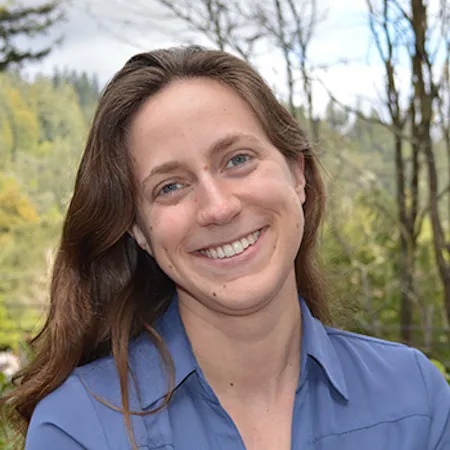In the Piedmont region of the eastern United States, much of the historical agriculture, 20th-century afforestation, and widespread residential development have occurred within watersheds dominated by temporary (i.e., ephemeral and intermittent) stream networks. However, increasing water quantity and quality demands have outpaced the basic understanding of these systems and their sensitivity to environmental change. Where, when, and how temporary streams flow, as well as their connection to below-ground aquifers, is poorly understood. To address this knowledge gap, Maggie Zimmer and colleagues utilized an ephemeral-to-perennial drainage network in the Piedmont region of North Carolina to gain new understanding about the drivers of streamflow generation, stream-groundwater interactions, and the expansion/contraction of the stream network. Through their results, they show that internal watershed dynamics that produce temporary streams play a central role in biogeochemical fluxes and groundwater recharge at the watershed scale.
Presenters

Maggie Zimmer
Margaret (Maggie) Zimmer is a PhD candidate in the Division of Earth and Ocean Sciences at Duke University within Dr. Brian McGlynn’s Watershed Hydrology and Biogeosciences Laboratory, which is associated with the Duke River Center. Maggie is a watershed hydrologist who broadly studies streamflow generation processes, stream-groundwater interactions, and temporary stream dynamics. Her doctoral research focuses on understanding the internal watershed mechanisms that drive streamflow in headwater systems. Maggie is interested in how environmental change may impact stream-aquifer interactions and...

Maggie Zimmer
Margaret (Maggie) Zimmer is a PhD candidate in the Division of Earth and Ocean Sciences at Duke University within Dr. Brian McGlynn’s Watershed Hydrology and Biogeosciences Laboratory, which is associated with the Duke River Center. Maggie is a watershed hydrologist who broadly studies streamflow generation processes, stream-groundwater interactions, and temporary stream dynamics. Her doctoral research focuses on understanding the internal watershed mechanisms that drive streamflow in headwater systems. Maggie is interested in how environmental change may impact stream-aquifer interactions and studies headwater systems in the context of groundwater resources and downstream systems. She received her MS degree at Syracuse University under Dr. Laura Lautz, where she studied the impacts of in-stream restoration on stream-groundwater interactions. She has a BA in Environmental Studies from Oberlin College in Oberlin, Ohio.